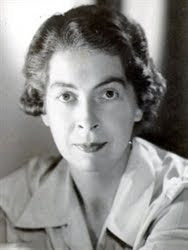
On Seeing Black-eyed Susans in a Field
The flowers look up into the skies
with wide brown wondering eyes.
Grasses wave,
roots grow deep,
winds brush low,
insects creep,
cicadas call
summer's song,
days draw out
warm and long.
Birds wheeling in low flight
see the field to their delight.
The flowers look up into the skies
with wide brown wondering eyes.
Grasses wave,
roots grow deep,
winds brush low,
insects creep,
cicadas call
summer's song,
days draw out
warm and long.
Birds wheeling in low flight
see the field to their delight.

I love when writers bring sentience and other human-like qualities to plants, flowers and trees. And the poem brings to life the whole world around those wondering flowers and connects them with everything else. I enjoyed this.
ReplyDeleteHow beautifully you expressed this.
DeleteElizabeth Yates had an illustrious career. You brought this work to life with the photograph. Her words are perfect in late summer.
ReplyDeleteI hope to read more of her work. I've got several books in my library 'book bag.'
DeleteLovely. I used to have lots of Black-eyed Susans in my backyard. The bunnies loved them.
ReplyDeleteThe ones around here are wild, and grow in less than great soil. Nothing ever touches them. They're like the daisies or goldenrod.
DeleteNan, love this poem. Not familar with author.
ReplyDeleteI learn so much from you.
I have some Black Eyed Susans
blooming now.
Old plants and have been moved many times.
Have a perfect day....
I've never had any success transplanting them. They just come up where they please. Sometimes they disappear from one spot and appear somewhere else.
DeleteI enjoy reading and writing nature poetry. Those sunflowers are good subjects for a writer.
ReplyDeleteThough they look similar, the flowers in the picture are actually black-eyed Susans (though I tend to call them brown-eyed) rather than sunflowers. My wild ones are only about 2 feet tall. Lovely when there's a whole group of them. They tend to grow where the wild daisies and goldenrod grow.
ReplyDelete